How do you hold a jury trial during lockdown?
- Published
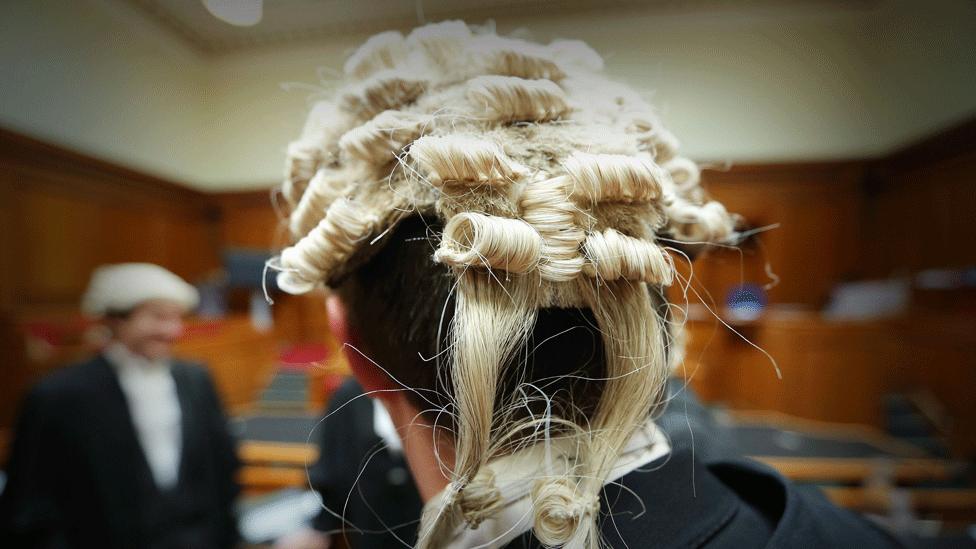
Jury trials are currently on hold in Scotland as part of the coronavirus lockdown, but the government is keen to get the system back up and running. More emergency legislation is being planned - but how do you get a jury together while maintaining social distancing?

What's the problem?
To start with, let's be clear that the Scottish justice system has not ground to a halt entirely. Jury trials may be on hold, but the vast majority of criminal trials do not take place before a jury.
In 2018-19, 94% of people convicted in a Scottish courtroom were prosecuted in "summary" trials before a sheriff or justice of the peace - although lawyers say many of these are also being kicked into the long grass.
Jury trials mostly happen for more serious offences, which could carry a sentence of over a year - these are known as "solemn" trials, and include all those heard at the High Court.
Clearly, it is difficult to assemble 15 randomly-selected people in a relatively small room, with a judge, accused and legal teams, while maintaining social distancing. So for now, solemn trials are on hold.
However, the Scottish government is worried about the impact on victims of crime, witnesses and accused people, and public faith in the justice system itself.
So what are the options, external currently being considered?
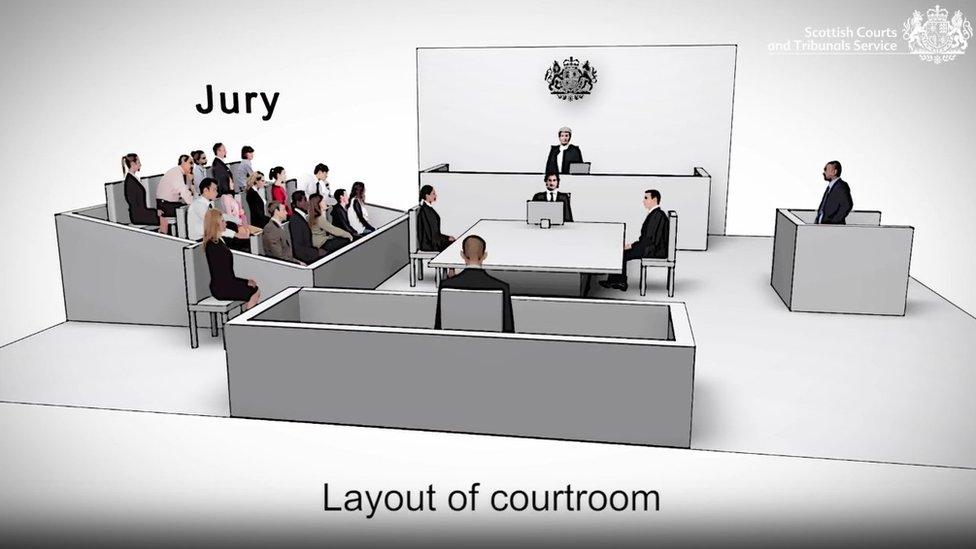
This court service graphic illustrates the social distancing problem for jurors
Wait it out
The base option is to do nothing at all.
Continuing the current state of limbo may seem like the simplest approach, but kicking all serious trials into the long grass could have significant effects in the longer term.
There is already a significant backlog of cases in the judicial system. It already takes months for a case to come to trial - a situation many see as unfair not only for victims of crime but also for accused people, some of whom are in prison on remand. Putting all solemn trials on hold could see those months become years.
For every five months the system is on hold, it is estimated that an extra 250 High Court trials and 540 sheriff court solemn trials are added to the backlog - something that could push the total number of outstanding trials more than 1,600 cases.
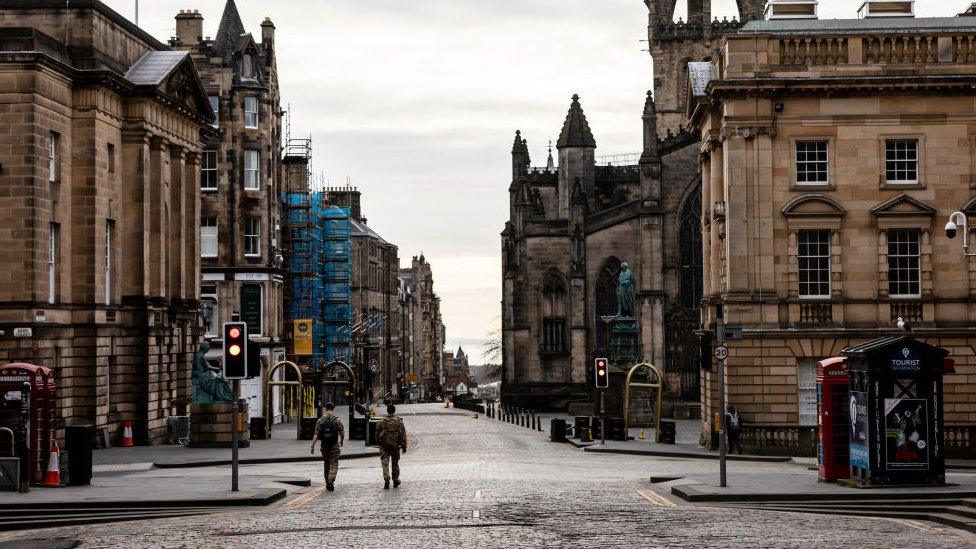
Can the court service withstand the High Courts remaining deserted for months on end?
Cut jury sizes
Cramming 15 people into a small room to consider a verdict is clearly a problem. But why does it have to be 15?
A Scottish trial can technically continue with 12 jurors, the same as the number used elsewhere in the UK. During the second world war, this number was reduced to seven.
This might help with social distancing during a trial, but you would still need to bring lots of people in to court to pick the jury in the first place. And with less wiggle room, it would raise the danger of trials collapsing should a juror fall ill.
A 2015 review of the criminal justice system by Lord Bonomy warned of the potential for miscarriages of justice should juries be slimmed down, given they have three verdicts to choose from.

Social distancing is difficult the way courtrooms are currently set up
Find bigger courtrooms
If courtrooms are too cramped for social distancing, why not use bigger buildings? One example suggested by MSPs was cinemas which are currently sitting empty.
This is not totally unprecedented - the fatal accident inquiry into the Clutha helicopter crash was held at Hampden Stadium rather than Glasgow Sheriff Court.
However, most cinemas do not have custody facilities where potentially serious offenders can be held during trial. And jurors would still need to travel there, and mix with court staff.
Ultimately, the government thinks it would take too long to fit out such venues in the short term, and says it would have little impact on the backlog of cases.
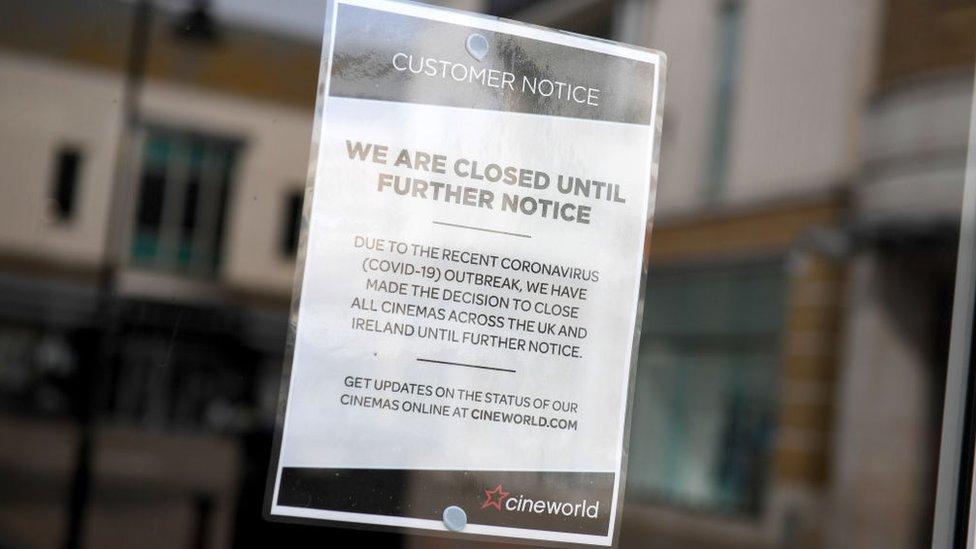
Cinemas are currently sitting empty - could trials be held in there instead?
Courtroom social distancing
What about utilising all the space in the existing courtrooms?
If you were to close courts to the public - as frequently happens in sex offences trials - you could sit jurors in the relatively spacious public gallery.
Again, this would not solve the problem of empanelling a jury, when dozens of people have to come to court so 15 names can be picked from a hat. And jurors would still be crammed together in a smaller room when considering their verdict.
Away from practicalities, there is also the issue of justice being seen to be done.
The Scottish government believes this approach "would not make any significant impact in reducing the backlog", but might be useful to deploy later down the road.
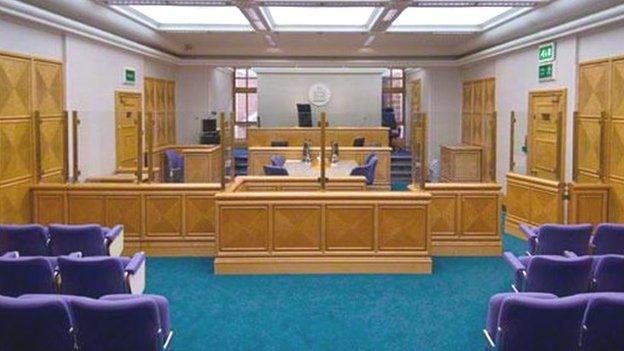
Is there room in the courtroom to fit in a jury if you take out the public gallery?
Remote juries
Could the jury all dial in over a video link? These hookups are already used in courts, for vulnerable witnesses to give evidence or prisoners to monitor proceedings from custody.
This would remove the issue of jurors having to travel to court, and be packed together for empanelling or deliberations.
However, the government warns there could be "significant legal, technical and operational challenges" in this. It would need 15 secure video links to 15 locations - all of them perfectly reliable throughout a potentially lengthy trial - without any risk of someone listening in on deliberations.
Ministers fear that getting this up and running "would not be achievable within the time constraints available".

Politicians may debate this over video links, but it is unlikely juries will meet over them
Test the jurors
Why not just test everyone who comes into court?
The government's focus is on testing frontline healthcare staff and other key workers, so it is "unlikely" they could quickly get into a position where everyone involved in a trial - court officials, lawyers, security, witnesses and the accused, as well as jurors - could be tested.
And if someone contracted the virus midway through, they could potentially infect the entire courtroom and collapse the trial.
What about people with immunity? The problem here is that juries are meant to be picked from a wide cross-section of society, not the relatively narrow group who have recovered from the virus so far.
Testing has not been ruled out as an option, but ministers have "a number of concerns as to whether it will be practicable".
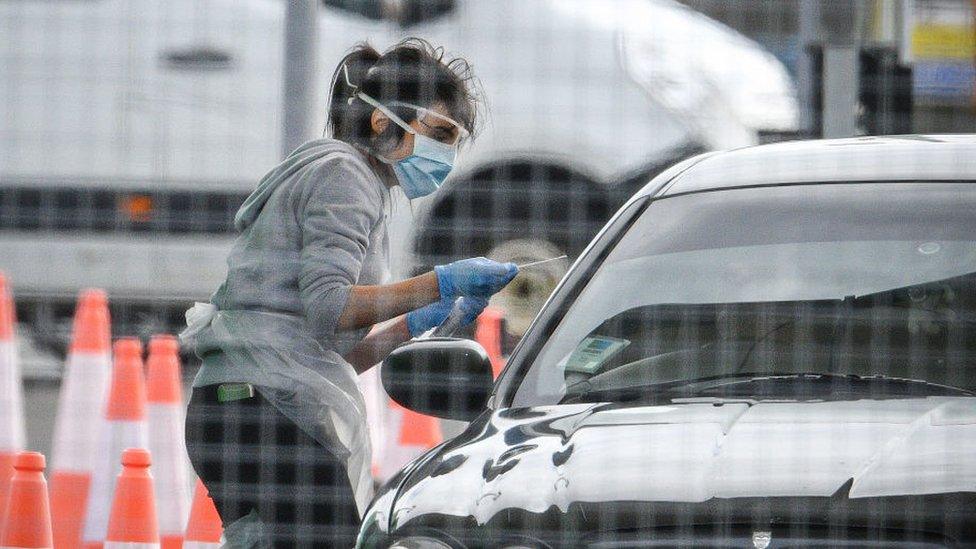
The current priority is to test frontline healthcare staff and other key workers
Hold trials without juries
The Scottish government's original plan was to get around the problem by having judges oversee more serious trials, either alone or in panels.
This was originally included in emergency legislation, but was removed after an outcry from the legal profession and politicians.
The argument for this is that judges are independent, impartial professionals who are well qualified to assess the credibility and reliability of witnesses. It would provide for a flexible system which could move more quickly.
However, the right to a trial by a jury of your peers is an important principle in the Scottish legal system which dates back hundreds of years.
The government said that while this remains open for discussion, "it is not our favoured option".
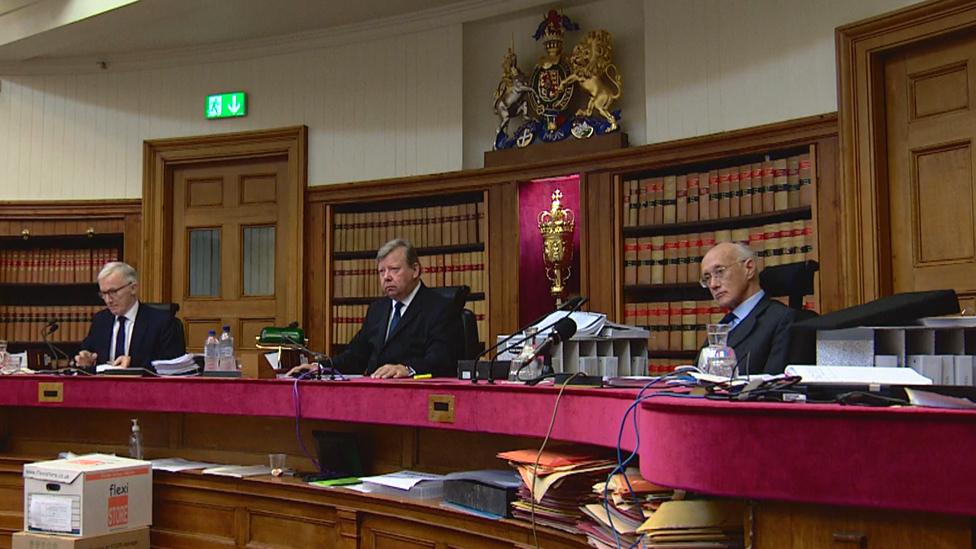
Senior judges currently decide appeal cases - but could they sit in panels to oversee serious trials?
Give sheriffs more powers
As noted above, the vast majority of trials are not solemn ones, and are heard in local sheriff courts. Many of these courts have been hit by the outbreak - some are closed entirely - but there are still a lot more sheriffs than High Court judges.
In "summary" trials, sheriffs can jail people for up to a year and fine them up to £10,000. But could this be expanded to include more serious offences, and thus punishments?
Sheriffs can also oversee jury trials, and these could potentially be expanded to also cover more serious offences in the post-lockdown period to help ease pressure on the High Court.
But it is worth remembering that sheriff courts have backlogs of their own, and are under as much pressure as any other part of the system. They also have to deal with civil cases as well as criminal ones.
Ministers say a move like this could potentially help cut through the backlog of cases, but stress that it would have to be a "temporary measure".
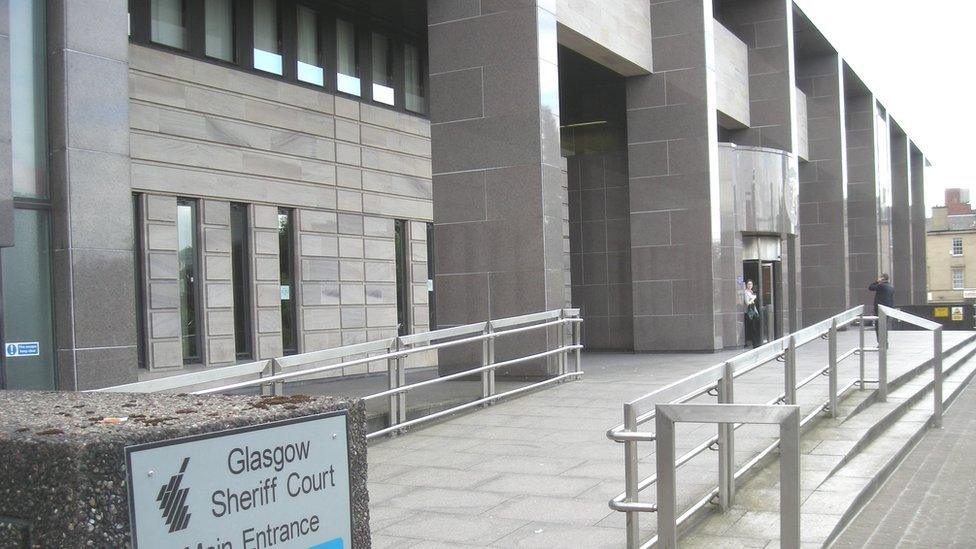
Sheriff courts are already busy - and have backlogs of their own
Speed up trials
This is "do nothing", but with a twist. Do nothing for now, but then scale up the court system once restrictions have been lifted to tackle the backlog more quickly.
Judges could be brought out of retirement, or others recruited. Mothballed courtrooms could be re-opened; the High Court "circuit" around the country could resume.
The trouble with trying to hit the ground running post-lockdown is that measures are unlikely to be raised overnight. The return to normality will be phased, not sudden.
The government warns that during this tricky period, "it will not be possible to divert significant resource from one area of the system to accelerate progress in another". The civil courts in particular could be very busy post-lockdown, as contract disputes are settled and debts chased by businesses and citizens alike.
And bringing back more judges would not in itself allow more courts to sit - courts need staff, from clerks to macers.
The government is open to some ideas to increase capacity, such as sitting seven days a week and working into the evenings. But they say "extreme care will be required" to set the recovery programme at a "sustainable" pace.